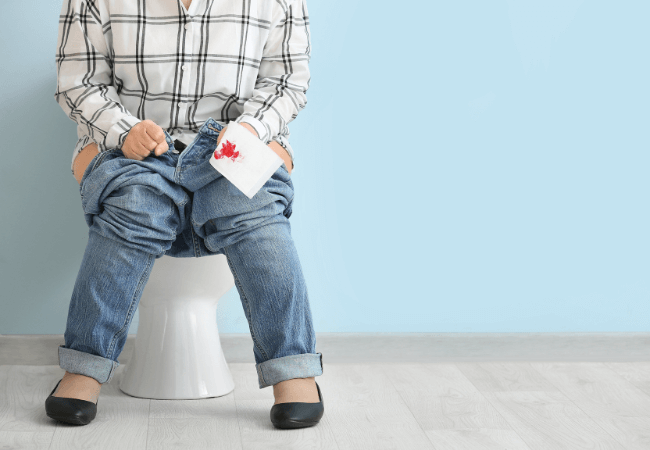
Haemorrhoid surgeries are routine and safe. However as with any surgery, there are always a few risks associated. Piles surgery risks are listed below.
1. Infection
2. Bleeding
3. Injury to internal organs
4. Risk of anesthesia
Few hours after the surgery, the doctors and nurses will encourage the patient to get-up and move.
You should be able to drink fluids after a few hours of surgery. Drink plenty of water every day to help prevent constipation.
There could be a little pain around the abdomen for a couple of days for which appropriate pain medicines would be prescribed to you. Usually most patients go home the same day or the next day.
The doctor will also recommend long term and short-term precautions that patients will need to follow.
Most people can return to work within three days to two weeks after surgery. People who's work involves performing manual labor may need more time.
You can return to light activities such as housework after a couple of days.
Gentle exercise, such as walking, can help you heal faster.
Avoid lifting anything heavy or performing strenuous activities for at least four weeks.
Sexual intercourse is permitted when you feel ready—generally, around three to four weeks post-surgery.
There is a small chance that Haemorrhoid or Piles can re-occur if you have regular constipation, or if you keep straining while passing stools or if you don't eat a high fiber diet.
If you take care of the above three concerns, the chances of haemorrhoids re-occuring is very less.
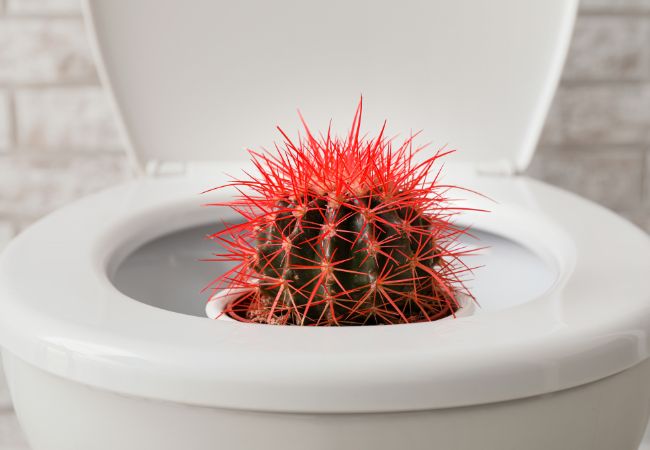
Lateral internal sphincterotomy: LIS is the surgical procedure of choice for anal fissures due to its simplicity and its high success rate (~95%). In this procedure the internal anal sphincter is partially divided in order to reduce spasming and thus improve the blood supply to the perianal area. This improvement in the blood supply helps to heal the fissure, and the weakening of the sphincter is also believed to reduce the potential for recurrence.. The pain from the sphincterotomy is usually mild and is often less than the pain of the fissure itself. Patients often return to normal activity within one week.
Fissurectomy: This is another surgery that can be used to treat anal fissures. This procedure produces the same result as a sphincterotomy, except that during this surgery, the edges of the fissure are also surgically removed, as are any skin tags that may have occurred in conjunction with chronic tears. A cauterising tool is then used to seal the entire area of the wound. The muscle is not cut.
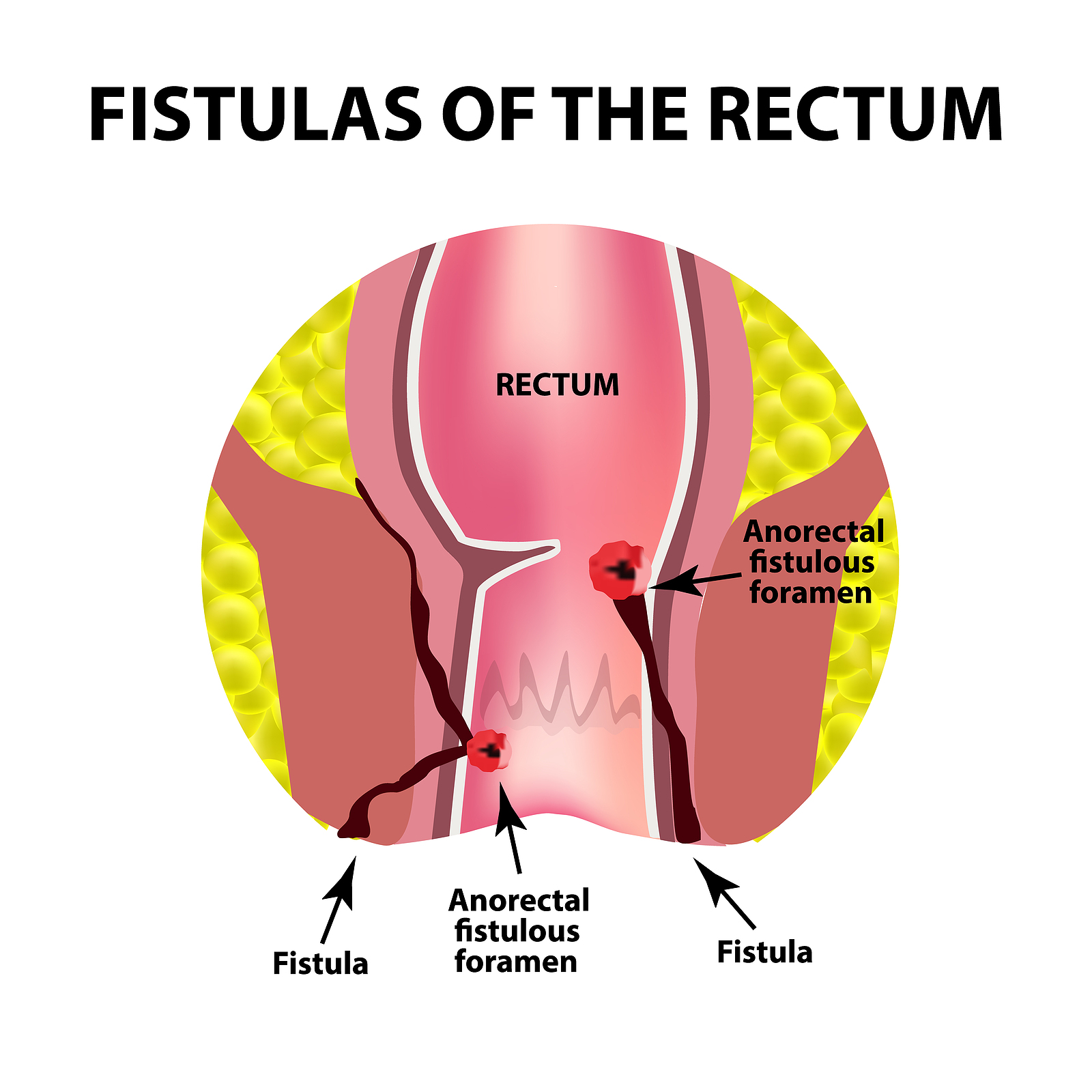
With any surgery, there are always a few risks associated. Anal Fistula surgery risks are listed below.
1. losing control of one’s bowel
2. taking a long time for the wound to heal
3. re-occurance of Fistula
4. difficulty in passing stools
risk of anesthesia
involuntarily passing wind or loose faeces
Yes. Despite proper treatment and complete healing, an abscess or a fistula can come back. If an abscess comes back, it suggests that perhaps there is a fistula that needs to be treated. You will have to consult again for treatment.
You will most probably be discharged from the hospital the same day of your surgery or max the next day. Complex & multi-branches fistula take time ( a few weeks) to heal while simple fistula can heal fast. In most cases, patients return to their normal life within a week.
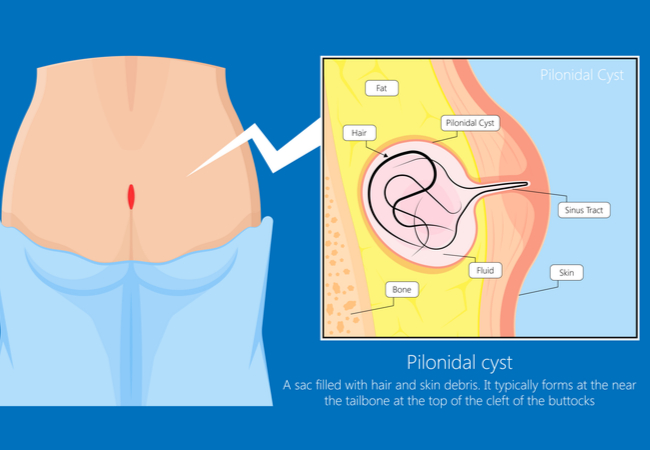
Pain when sitting or standing
Swelling of the cyst
Reddened, sore skin around the area
Pus or blood draining from the abscess, causing a foul odour
Hair protruding from the lesion
Formation of more than one sinus tract, or holes in the skin
Yes, Pilonidal sinus can re-occur after surgery.
By following the below steps you can prevent it from re-occurring.
1. You can prevent recurrence by washing the area on a daily basis with a mild soap, making sure all soap is removed, keeping the area completely dry, and avoiding sitting for long periods.
Shaving of hair on the back and the buttock area.
Permanent laser treatment also can be helpful.
It can take up to 3-6 weeks for the pilonidal sinus to be completed healed, depending on the complexities of your case. However, this should not hinder you from doing normal activities. Avoid sitting for a long period of time to avoid discomfort.
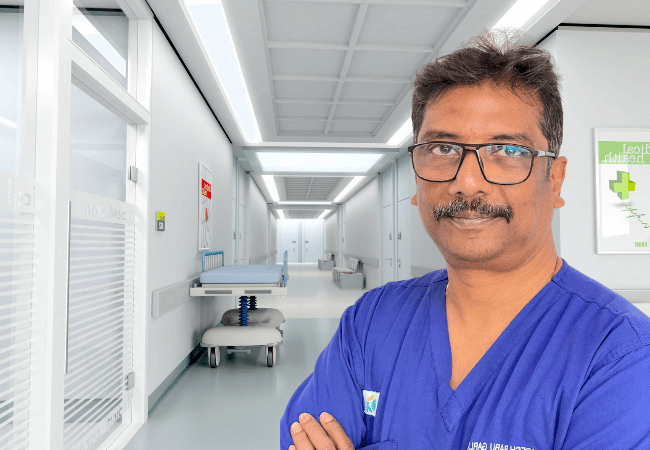



(Time : Mon to Sat / 10 am to 2 pm)
Address : Apollo Specialty Hospitals Jayanagar, Old Number 21/2, New Number 2, 14th Cross, 3rd Block, Jayanagar, Bengaluru, Karnataka 560011
Call # +91 - 966393xxxx